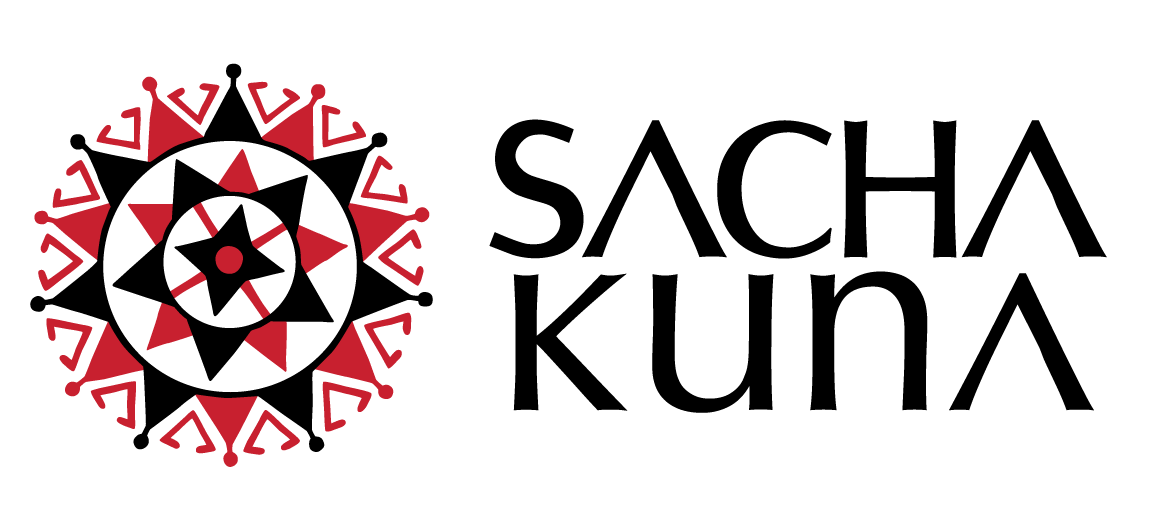| Immerse Yourself in Ancient Traditions Thanks to years of dedicated research by our founder, Irina Pea Goukova, Sachakuna has established profound relationships with esteemed healing masters from various Peruvian ethnic traditions. This allows us to offer plant ceremonies that are conducted with the utmost safety and provide essential support for the well-being of both body and mind. At Sachakuna, we also offer specialized diets with master plants, held in secluded tambos nestled within the untouched beauty of nature. Here, under the supervision of specialized maestros, guests can experience a profound purification of body and mind, achieving deep balance and uncovering solutions to long-standing challenges. |
-
What Makes a Retreat a Profound Experience?
A retreat is more than just an escape—it’s a profound journey into the depths of self-awareness and healing. At Sachakuna, our retreats are carefully designed to allow you to disengage from the stresses of everyday life and immerse yourself in the natural rhythms of the Amazon. Through ancient practices and serene surroundings, you’ll find the space to restore your body, calm your mind, and awaken your spirit.
-
Who Will Benefit from Our Retreats?
Our retreats are crafted for those who yearn to reconnect with themselves and nature. Whether you’re a seasoned explorer of the inner realms or embarking on your first wellness journey, our retreats are accessible and beneficial to all. From those in search of peace and rejuvenation to those with specific wellness goals, our retreats provide a pathway to deeper self-understanding and balance.
-
Is it Safe to Participate?
Your safety is of utmost importance to us. We collaborate exclusively with highly respected and skilled maestros curanderos, renowned for their deep knowledge of Amazonian healing traditions. These masters guide each ceremony with integrity and care, ensuring that every participant is supported and nurtured throughout their experience, allowing you to fully embrace the healing process in a secure environment.

He guides people through the world of the spirits using the traditional songs called the Ikaros. The Ikaros were taught to him by his grandfather, master medicine man of the jungle.
He combines songs and silence to take people deep into themselves and connect them to nature while giving the freedom to explore their personal beliefs.
He’s been studying the teacher plants with Amazonian masters of Shipibo, Cocama, Asháninca, Yawanawa, Chayahuita and Quechua Mestizo ethnicities.
He uses the Shakapa, Andean flute (la quena), the pan flute (la zañponia), the Andean guitar (charango), the guitar and drums and many more instruments to accompany his healing work.

Acacia is a yoga teacher, medicine woman and plant medicine integration coach. She trained thousands of yoga teachers from all over the world and leads medical retreats in Peru with her indigenous Husband Maestro Chakaruna.
Born in Canada and trained in India, Bali, United Kingdom, United States, Mexico and Canada. Acacia’s styles of yoga include sky aerial yoga, vinyasa yoga, Hatha yoga, tripsichore yoga, yin yoga, yoga nidra, restorative yoga, Pilates and yoga dance.

Indigenous community: Quichua-Chazuta Experience in medicine 25 years
In ceremonies, he uses various musical instruments that help connect with healing plants.

Runs an eco-friendly family business called Rio Casut Magic Forest.
Indigenous community: Quichua-Chazuta.
Experience in medicine for over 20 years.
Specialization: diets with plant teachers, deep knowledge in the field of medicinal plants.

"Our land is more than just a home; it is a sanctuary of symbiosis, inner peace, meditation, a school, health, and a library. It is the love of family, the joy of children, and our guarantee of survival for the future of our children. It is our contribution to a world troubled by ambition."
— Alberto Pizango
He holds a degree in Primary Education with a specialization in Bilingual Intercultural Education from the National University of the Peruvian Amazon in Iquitos and has a master’s degree in Amazonian studies from the National University of San Marcos. Since the 1990s, he has held leadership positions in federations and organizations of indigenous populations.

Olga Mori, known as Senen Jisbe, which means "wise woman" in the Shipibo language, hails from her homeland of Calleria, where she spent her childhood and youth. Raised by her grandparents, who were master healers, she absorbed their wisdom from the age of five.
During a ceremony, Olga received direct teachings from the Spirits of the medicine. Since then, she has dedicated herself to learning and practicing icaros, the sacred melodies used in healer.
Immersed in nature, Senen Jisbe finds inspiration and wisdom to offer help to those in need. Her deep connection with the natural environment and her commitment to spiritual healing have made her a respected and sought-after figure within her community and beyond.

Born in the community of Nuevo Ceylan, Ucayali, he grew up immersed in the rich Shipibo culture. Throughout his childhood and youth, he lived and learned within the same community, where his father served as a healer. His father's influence was fundamental in his life, guiding him toward the path of curanderismo. He began his own work as a healer at the age of 22, and for more than two decades, he has been sharing his medicinal wisdom.
Accompanying his father during ceremonies always fascinated him, and that experience inspired him to follow in his father's footsteps. He asked his father to guide him through a plant diet to become a healer, feeling a deep need to help those facing psychological and spiritual challenges in his region, deeply rooted in Shipibo culture. His primary goal in curanderismo is to convey humility and respect for medicinal plants, which are essential elements in their healing work.
His connection to nature is strengthened through daily care and cultivation. This connection teaches him valuable life lessons and makes him feel deeply united with the plants, the earth, and the universe. His deepest wish is to share this connection and wisdom.
The trust he places in the medicine he shares and the connection with plants and their healing properties are aspects that drive and guide him in his daily work.

In 1980, he ventured into the Amazon rainforest and lived with the Shipibo people in Ucayali, where he learned about the properties of medicinal plants like Ayahuasca, as well as traditional healing techniques. Later, in 1983, he participated in a gathering of healers in Ecuador, where he demonstrated practices of traditional Peruvian medicine.
In 1986, he married María Isolina Vera Chozo, the daughter of a renowned healer, from whom he gained further wisdom about medicinal plants and healing techniques. In 1994, in Lima, he met American Master Harold Moskovitz, from whom he learned about Eastern culture.
In 1998, he participated in the Third World Congress of Scientific Youths in Cusco, conducting healing sessions at Machu Picchu. This led to an invitation to the X International Diploma in Medicinal Plants in Mexico in 1999. In the year 2000, he gave lectures at the State University of New York on traditional Peruvian medicine.
In 2002, he was invited to participate in the event "Shamanism and Healing: Conversations and Rituals with Medicine Men and Women from Peru" in Washington, D.C. Since 1994, he has been a member of the National Institute of Traditional Medicine (INMETRA) and collaborates with the National University of Cajamarca.
Currently, he is a member of the National Center of Intercultural Medicine (CENCI) in Lima and is planning to build a natural medicine clinic. He presently sees patients at the Center for Research and Application of Alternative and Traditional Medicine (CIAMAT) "Luz del Cumbe" in Cajamarca.

Gerónimo Bardales Valqui, born on March 4, 1963, in the district of María, province of Luya, Amazonas region, is the son of Mario Bardales Vigo, who passed away ten years ago, and Carmela Valqui Muños, who is still alive. About 25 years ago, he discovered his gift for healing, driven by two divine reasons.
First, his grandfather, Rosendo Valqui, practiced healing rituals using medicinal plants, passing this knowledge down through his mother. Second, his family held a strong devotion to the Holy Cross, especially venerating Saint Florian in a northern community where he observed his grandfather using medicinal plants to cure ailments.
Driven by curiosity and the need to diagnose, he began to take the pulse of those seeking his help, a practice that has led to his success to this day, alongside the healing power of plants and cleansing with the guinea pig, which serves as an alternative to scientific diagnosis.
He expresses gratitude to God and the Virgin of Chuquichaca for this healing gift, which he shares with his region and beyond.

A native Quechua speaker, born into the ancient Inka tradition of Andean healers from Canchis, Cusco, Peru, he was initiated into the four Andean wisdoms known as KARPAY in the mountains "Kanchis Punku Paqareq, Ausangate, Qoullurritty, Salkantay" by his grandfather, Kuraq Akulleq, Pascual Quispe Phillco. He shares and conveys the message of love from PACHAMAMA and ILLA PUNCHAW TEQSI, KON TI KI, MU, WIRAKOCHA, PUNCHAY PACHAKAMAQ, PACHA YACHACHEQ (the Cosmic Father, Creator of the Universe).
Currently, his work is a constant search for the cosmic traces of the sacred paths left by our first celestial ancestors in the most sacred places on Earth, such as Titi Kaka, Amaru Muru, Machupicchu, Saqsayhuaman, Killa Rumiyoq, Waqra Pukara, Ñaupa Waka, Sachakuna, and others. These sites hold the keys to spiritual, psychological, and physical healing for all humanity, enabling spiritual ascension and the reconnection of humanity's umbilical cord with the Great Mother.
In the silence of life, you feel and hear voices within... It is because the doors remain open, allowing entry into the same vibrational frequency as the cosmic community.

Maritza Villavicencio, 66 years old, was born in Lima. She is a historian, museographer, and phytomancer. The latter means that she could read pallares, a type of Mochica oracle. Although she did not complete her studies in History, her publications have made a significant impact, establishing her presence in the current context.
In 1977, she founded the Memoria de la Mujer Peruana Museum Association, which received support from UNESCO. Additionally, she was the author and curator of the Binational Exhibition “Divine and Human: The Woman in Ancient Mexico and Peru,” which was exhibited in Peru during 2004-2005, in Mexico in 2005, and in the United States in 2006. For several years, she has been researching the relationship between women and food in the Paracas, Nasca, and Pachacamac cultures.
She served as Vice President of ICOM PERU from 2006 to 2009. She is a member of the board of the PEN International Writers Commission of Peru and has given numerous lectures in various countries in Latin America, Europe, Africa, and the United States.
Literary Production:
- Chaska
- The Route of the Oracles: A Journey Through Mystical Peru (published by the prestigious Apus Graph Editions).
- Female Power, 5000 Years of History in Peru
- From Silence to Speech: Peruvian Women of the 19th and 20th Centuries
- Women in Ancient Peru
- Divine and Human: Women in Ancient Mexico and Peru
- Women, Power, and Food in Ancient Peru
- Magical Peru
- Magical Peru II, Tribute to Machu Picchu
- History Seminar of Peruvian Cuisine
Through his practice, he integrates Andean rituals, plant medicine, and ancestral teachings passed down through his lineage, supporting individuals in processes of emotional healing, expansion of consciousness, and reconnection with the wisdom of Pachamama.
More than two thousand people have sought his guidance and ceremonies, dedicated to opening the heart, cultivating inner harmony, and reconnecting with oneself.
His message is simple yet profound: listen, trust, and allow life to reveal your own path.
- EducationChinese Medicine – IMTC France
- Ethnomedicine – France
- Brief Therapy – Over 30 years as instructor
Therapeutic ApproachCombined approach:
- Brief Therapy (short, solution-focused processes)
- Chinese Medicine (acupuncture, pulse diagnosis)
- Ethnomedicine (deep causes and restoration of balance)
ValuesEmpathy, authenticity, confidentiality, and a strong commitment to holistic well-being.
- Deep tissue (muscle-release) massages
- Relaxation massages
- Therapeutic massages
- Cupping therapy
- Reflexology
- Basic chiropractic adjustments
- Ideal for:Muscle pain
- Contractures
- Stress
- Physical fatigue
- Body recovery



